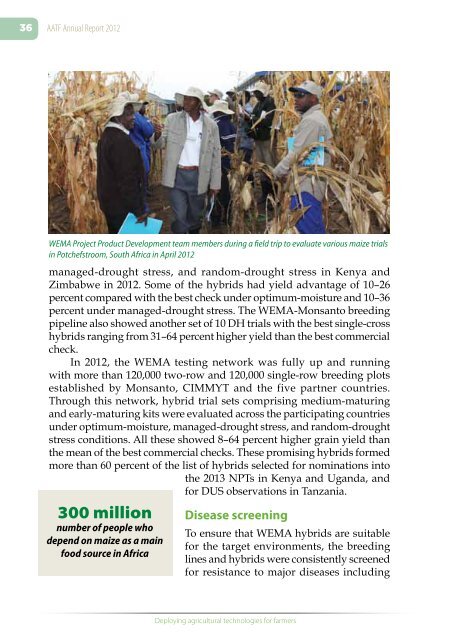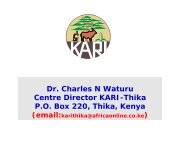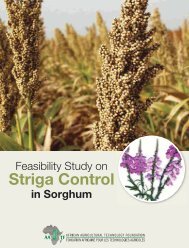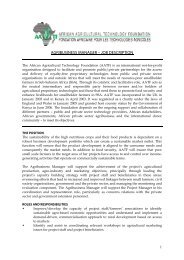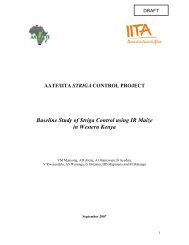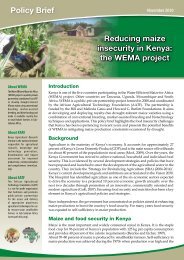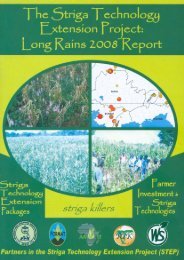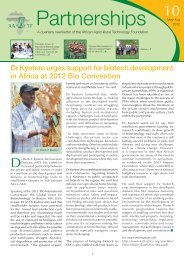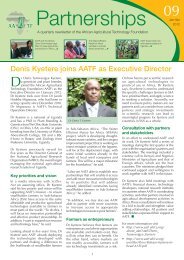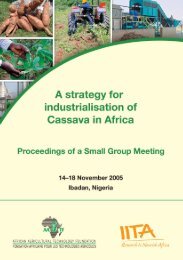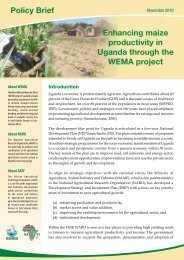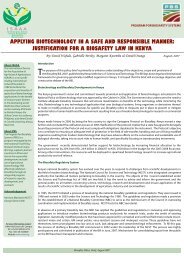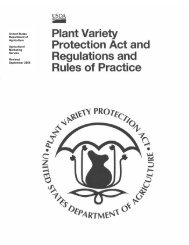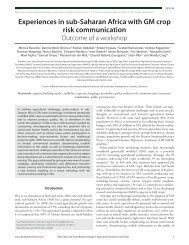Annual Report 2012 - African Agricultural Technology Foundation
Annual Report 2012 - African Agricultural Technology Foundation
Annual Report 2012 - African Agricultural Technology Foundation
Create successful ePaper yourself
Turn your PDF publications into a flip-book with our unique Google optimized e-Paper software.
36 AATF <strong>Annual</strong> <strong>Report</strong> <strong>2012</strong><br />
WEMA Project Product Development team members during a field trip to evaluate various maize trials<br />
in Potchefstroom, South Africa in April <strong>2012</strong><br />
managed-drought stress, and random-drought stress in Kenya and<br />
Zimbabwe in <strong>2012</strong>. Some of the hybrids had yield advantage of 10–26<br />
percent compared with the best check under optimum-moisture and 10–36<br />
percent under managed-drought stress. The WEMA-Monsanto breeding<br />
pipeline also showed another set of 10 DH trials with the best single-cross<br />
hybrids ranging from 31–64 percent higher yield than the best commercial<br />
check.<br />
In <strong>2012</strong>, the WEMA testing network was fully up and running<br />
with more than 120,000 two-row and 120,000 single-row breeding plots<br />
established by Monsanto, CIMMYT and the five partner countries.<br />
Through this network, hybrid trial sets comprising medium-maturing<br />
and early-maturing kits were evaluated across the participating countries<br />
under optimum-moisture, managed-drought stress, and random-drought<br />
stress conditions. All these showed 8–64 percent higher grain yield than<br />
the mean of the best commercial checks. These promising hybrids formed<br />
more than 60 percent of the list of hybrids selected for nominations into<br />
the 2013 NPTs in Kenya and Uganda, and<br />
for DUS observations in Tanzania.<br />
300 million<br />
number of people who<br />
depend on maize as a main<br />
food source in Africa<br />
Disease screening<br />
To ensure that WEMA hybrids are suitable<br />
for the target environments, the breeding<br />
lines and hybrids were consistently screened<br />
for resistance to major diseases including<br />
Deploying agricultural technologies for farmers


